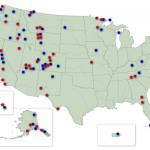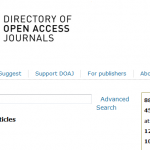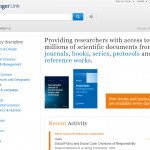
Schulich Library now has a collection of engineering standards in printed format that is browsable within the library catalogue! It is called the Schulich Library Standards Collection and it currently contains over 200 standards and growing. You can access the collection at: Schulich Library Standards Collection.
What are engineering standards anyway? They are very important technical documents that allow engineers to design products and processes that are high-quality and safe. They are produced by industry experts, academics and others brought together by professional organizations, non-profits and government organizations, like the International Organization for Standardization (ISO), the American Society for Testing and Materials (ASTM) and many others.
To borrow a standard from the new collection, please make note of the item’s call number and ask for it at the Schulich Library service desk on the main floor. You can also search for a standard produced by a specific organization by accessing the collection and modifying the search string at the top of the screen to include the organization’s name. For example, to search the ASME standards in the new collection, add ASME to the existing search string: ut: Schulich Library Standards Collection. So your search would look like this: ASME AND ut: Schulich Library Standards Collection.
Please note, most standards held at McGill Libraries are available in printed format only, with the exception of engineering standards produced by select organizations like IEEE. Also, engineering standards are one of the rare item types that generally cannot be request through the Libraries’ interlibrary loans service.
To find out more about the new collection and all the engineering standards available through McGill Libraries, including a list of standard-issuing organizations from which McGill Libraries have standards, please see: McGill Libraries’ Patents, Standards, and Technical Reports Research Guide or email us at schulich.library@mcgill.ca
If you would like the staff at McGill Libraries to consider purchasing a standard for the new collection, please use the email options on the right-hand side of the page to contact the Schulich Librarians for physical sciences and engineering topics and the Macdonald Campus Librarians for agricultural, environmental science, nutrition and parasitology topics. Please keep in mind that standards normally take a few weeks to be acquired and made accessible.





